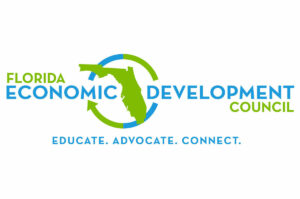Your Future Worker Strategy Needs to Contain Less Workers

In 2021, I was the lead author of a white paper titled “The Demographic Drought” which started a global conversation of the “Sansdemic” or, without people, problem the U.S. and other developed nations were experiencing. In 2022, the U.S. faced historical labor shortages as a nation flush with cash tried to buy goods and services at a time when very few people were making the goods or providing the services. Inflation soared and the Federal Reserve intervened and tried to weaken the labor market. But, it has had the opposite effect. Unemployment in January was the lowest non-war time rate in U.S. history.
Why?
Understanding the Boomers and their profound impact on the labor force is a critical component in unpacking what will happen over the next 10-15 years. What the U.S. has experienced the past 2 years is merely a taste of what will become a critical shortage of workers. Korn Ferry projects a 6M worker gap by 2030. It may be worse than that. By 2034, there will be more older adults than children for the first time ever in our country. A large aging population relying on a shrinking and less work involved millennial, Gen Z, and whatever generation comes after.
There is a bigger problem. In October of 2022, I co-authored an article titled “Who is Going to do the Work?”. Tallo and Lightcast combined to survey 1,500 high school students about their intentions after they graduated. Our population was a bit biased towards college due to their relationship with Tallo and a full 85% of our respondents said they intended to get a 4 year degree. More negative surveys taken in prior years settled in a 60% range, but we know that currently 2 out of every 3 high school grads immediately enrolls in college. This poses a very extreme problem as roughly 2/3rds of all jobs currently in the U.S. do not need a 4-year college degree.
What does this mean?
The fallout of an entire nation encouraging all children to pursue a 4-year degree means that many industries that keep the country functioning will not have the workers they need. The huge food supply industry, utilities, construction, police and fire, garbage collection, and numerous others simply will not be able to operate in their current capacity. Most importantly, the aging boomers will need healthcare as never before and there simply are not enough people to staff that sector. Because of the significant labor shortages, the U.S. will continue to see significant wage inflation in lower skilled jobs, with many overtaking college degreed jobs in the next decade. It is already happening in skilled trades where electricians at 25 years old are approaching and often exceeding 6-digit salaries. Restaurant tabs that were once considered excessive when over $100 are becoming and will become normal. Americans will eat out less and have less options when they do.
What can you do?
- Our survey showed us a number of interesting dynamics facing young people today. First, societal pressure from parents, guidance counselors, friends, are coercing young people who probably should not be in college to pursue it anyway. The messaging has to change. Every job is valuable.
- Our respondents told us that they valued the coming-of-age experience of college just as much as the degree itself. Employers of young adults who do not go to college must figure out ways of creating social networks for these people. Roughly 30% of married college couples met their spouse at their college. Colleges excel in team sports, weekend parties and activities. They are formidable competitors.
- Although Gen Z consistently say in surveys that they want jobs that “make a difference” give them a “sense of purpose” with most saying they want to own their own business someday, they fail to see the connection that jobs in occupations like the skilled trades give them everything they are seeking. Why they don’t make the connection sometimes comes down to perceptions. The jobs are hard. Don’t pay well. Society doesn’t value them. This can be overcome with effective marketing. Not by the individual company but collectively and getting that message to kids at a younger age.
- Apprenticeships and mentorships and the value of “having the experience”. A full 97% of our respondents said they would choose a college if it could get them an internship with a company they value. If you are a college, then you know the secret to winning is finding out WHO they value, and WHY they value them and partnering with them. If you are not a college, you need to ask yourself the same questions. How do you become valuable in the eyes of younger generations, or even people who may have become jaded with their jobs they took after college? People want a life of purpose and most jobs have it and can show it if they could just get people to see what they do.









